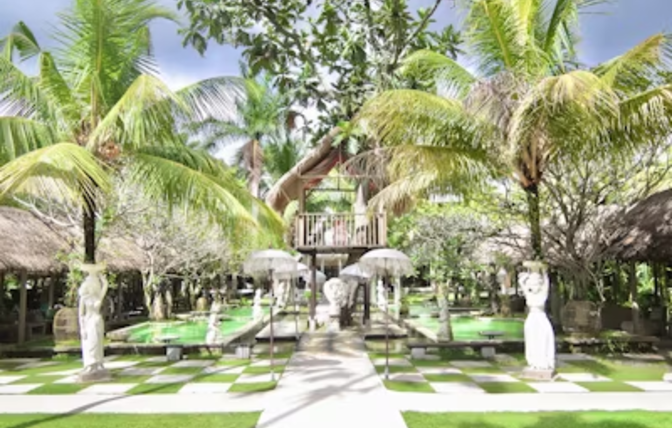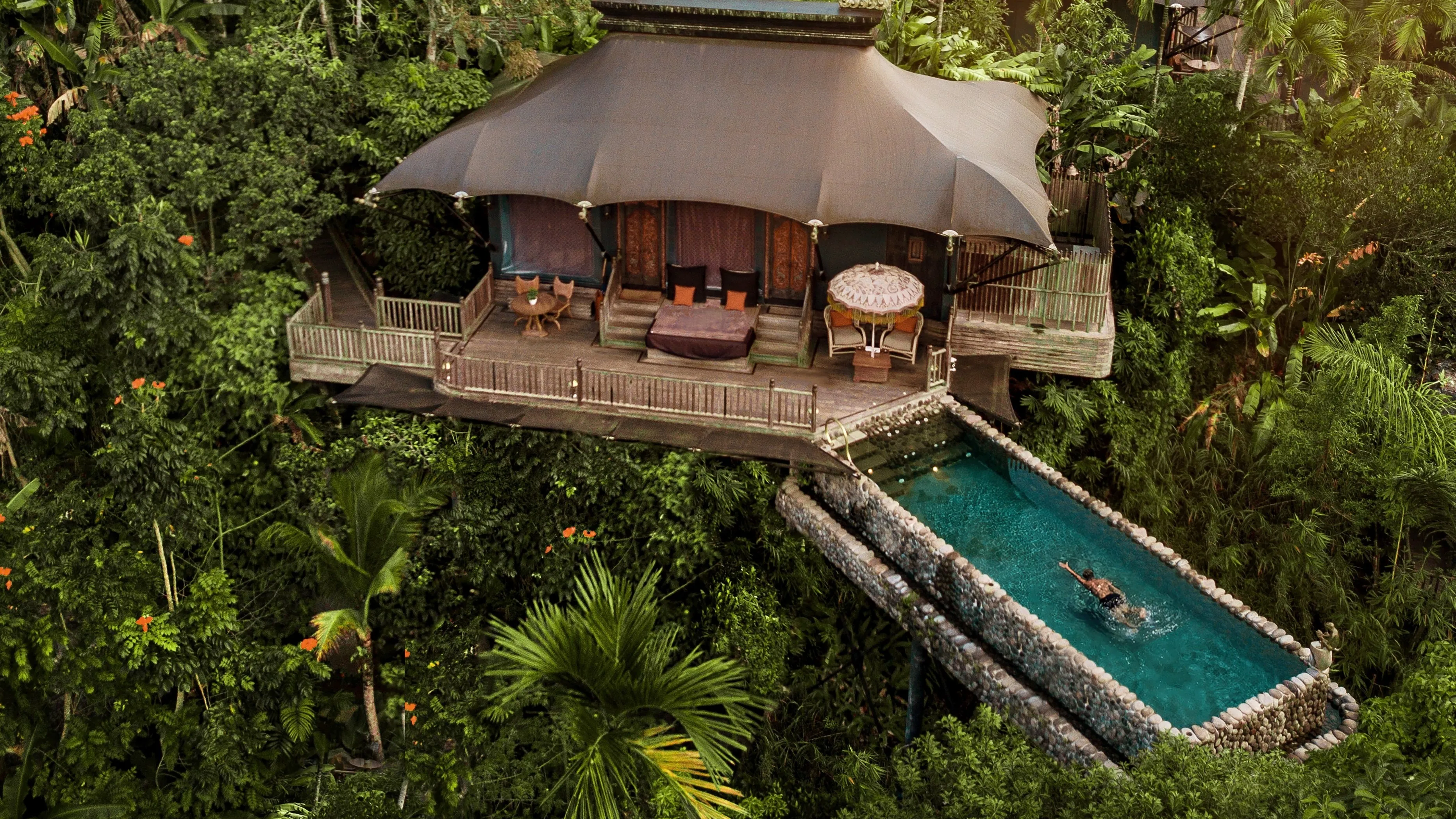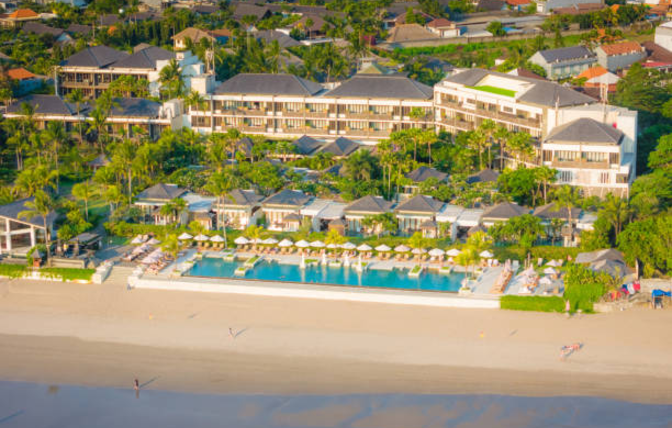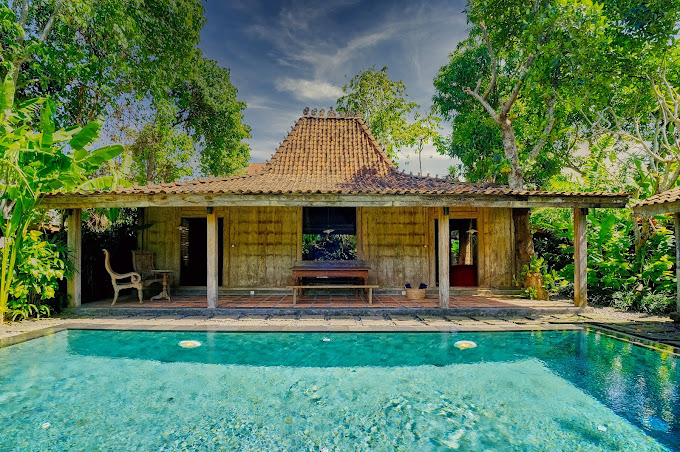
Indonesia's pristine eastern islands, Flores and Sumba, are undergoing a transforming wave of green tourism, as a string of new luxury eco-resorts strikes a series of perfect balances between world-class comfort and environmental respect. These hideaways offer high-end retreats at a deep respect for the indigenous culture, biodiversity, and traditional craftsmanship. With sustainability becoming the focal point of global tourism, these two islands are leading the way in Southeast Asian green luxury travel.
Flores: Entrance to Komodo and Entrance to Grace
Eco-Architecture Motivated by Local Heritage
Flores, which has the Komodo National Park, is now gaining popularity for its emerging eco-tourism infrastructure. The new luxuryeco-resorts here are made of locally sourced materials, from bamboo to volcanic rock, reminiscent of Manggarai architecture which harmoniously merges with nature. Resorts like Taman Laut Resort and Eco Nirvana Villas are designed so that they have the least impacts on the vulnerable marine ecosystems and the dense tropical forests.
Each structure is located to reduce energy consumption naturally—using cross-ventilation, solar panels, and green roofing techniques. Visitors enjoy luxury while not damaging the planet, with amenities such as saltwater infinity pools, organic gardens, and low-waste cuisine.
Experiences That Enrich the Soul and Earth
Eco-luxury on Flores is not merely about a good night's sleep—it's about living responsibly. Visitors are invited to dive responsibly in Komodo's coral seas, learn traditional weaving techniques with community-based programs, or trek Mount Kelimutu with conservation-trained native guides. These hotels collaborate hand in hand with local indigenous tribes to ensure that economic benefits are shared and cultural purity preserved.
Sumba: Unspoiled Island Beauty Reimagined
Redefining Opulence With Purpose
Sumba, once a peaceful agricultural island, is now a global benchmark for luxury eco-resorts with good conscience. Properties like Maringi Eco Resort and Nihi Sumba are raising the bar on extravagance: where every villa is solar-powered, every bite is farm-to-table, and every activity supports Sumba Foundation's development initiatives.
Nihi Sumba, consistently ranked on the globe's greatest resorts, is at the forefront of regenerative tourism. It balances high-end amenities—remote surf breaks, spa treks, horseback rides along the beach—with initiatives to better education, the availability of clean water, and health care for the inhabitants.
A Design Ethos That Preserves the Land
Every resort in Flores and Sumba respects its sacred ground. Design is inspired by Uma Mbatangu, Sumbanese traditional peaked homes. Interiors include handloomed ikat fabrics, handcarved wood ornaments, and sustainably sourced natural elements. Every property is designed to have a minimal footprint development, leaving native flora and fauna intact.
Why Flores & Sumba Lead Asia's Eco-Luxury Movement
Commitment to Carbon Neutrality
Both islands' hotels are embracing carbon offsetting programs, investing in reforestation for Flores' interior rainforests and mangrove planting along Sumba's shorelines. Some even offer guest carbon calculators, where visitors can see and offset their own footprint while on property.
Zero Waste, Maximum Impact
From on-site composting and plastic-free policies to refillable toiletries and greywater systems, such resorts operate on a zero-waste philosophy. Kitchens are stocked with in-house or locally grown organic produce, cutting down on food miles and allowing culinary sustainability.
Community-Centric Luxury
What sets these eco-resorts apart is the intensive engagement with the locals. While cookie-cutter high-end resorts habitually segregate tourists, these resorts offer genuine local immersion experiences—whether learning about the Sumbanese traditions, attending Flores' village festivals, or being part of coral reef clean-up programs.
Best New Eco-Resorts to Explore in Flores & Sumba
1. Taman Laut Eco Resort – Flores
Sitting on top of the coastline with ocean views directly to coral gardens, this eco-marine lodge has off-grid bungalows, solar-powered desalination, and reef restoration activities with marine biologists.
2. Eco Nirvana Villas – Labuan Bajo, Flores
An adults-only resort with panoramic ocean views, yoga sanctuaries, and vegan fine dining. Construction employed local workers and zero cement policy, utilizing volcanic stones and bamboo.
3. Maringi Eco Resort – Sumba
A Sumba Hospitality Foundation initiative, the resort is also a training ground for local youths to acquire hospitality and sustainability know-how. Overseas visitors stay in eco-friendly yurts that are designed for peak thermal performance.
4. Nihi Sumba – West Sumba
World-famous, Nihi features cliffside villas, private beach, and on-site chocolate production—all solar-powered and permaculture-managed. Luxury at its best, with purpose.
5. Alamayah Boutique Retreat – South Sumba
Secluded wellness retreat offering detox retreats, sound healing, and herbal medicine treatments—using ingredients and décor elements all sourced locally from within the island.
Practical Traveler's Tips for Visits to These Eco-Resorts
Book Early: The resorts themselves have a limited capacity so that they can preserve their exclusivity as well as limit their environmental footprint.
Pack Light and Smart: Bring reef-safe sunscreen, refillable water bottles, and biodegradable toiletries.
Respect Local Customs: Dress modestly in villages, seek permission before taking pictures, and interact respectfully with local activities.
Choose Responsible Tours: Some of these resorts have in-house tours filtered for sustainability. Choose guided tours that are community-friendly.
The Emergence of Green Travelers
Modern travelers are no longer satisfied with just comfort alone—they are seeking authenticity, meaning, and sustainability. Flores and Sumba's luxury eco-resorts offer just that: transformation travel experience that is beneficial to both the traveler and the destination.
The future of tourism after the pandemic is encapsulated in these islands—that destination where luxury is about responsibility and where each journey leaves a positive mark.













